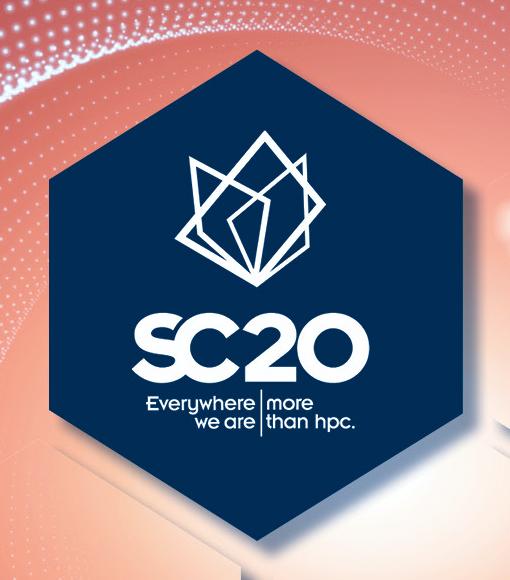As big data dominates our markets, the need to assemble and analyze data efficiently has driven high-Performance Computing (HPC) out of research silos and into many public and private enterprises.
The Supercomputing Conference (SC), held from Nov. 9 to 19, is the premier event for this rapidly growing field. Mathematicians, engineers, and developers come together to present the most groundbreaking HPC research, and each year, the Georgia Tech name is one of the leading names in those presentations.
Although it is being hosted virtually, this year is no different for SC20 presentations. With several papers, awards, and workshops, Georgia Tech, represented by the School of Computational Science and Engineering (CSE), Partnership for Advanced Computing Environment (PACE), School of Computer Science (SCS), and the Georgia Tech Research Institute, is leading charge in the HPC discussion.
This year, Georgia Tech’s SC20 proceedings includes two notable awards.
SCS Chair Vivek Sarkar is being recognized with the ACM-IEEE CS Ken Kennedy Award, Nov. 16. Sarkar’s recognition honors his leadership in several areas including foundational technical contributions to programmability and productivity.
[Related News: ACM/IEEE Recognizes Chair's Research, Service to Computer Science Community]
CSE Ph.D. student Vijay Thakkar and Professor Rich Vuduc are being recognized with a Gordon Bell Prize nomination for their paper, Scalable Knowledge Graph Analytics at 136 PetaFLOPS. Their work, developed with a team from Oak Ridge National Laboratory, is motivated by data mining large-scale bodies of scholarly publications to discover concepts that relate to one another. The announcement of the Gordon Bell Prize winner for 2020 will be held, Nov. 19 from 2 to 2:30 p.m. EST.
An invited talk by SCS and School of Electrical and Computer Engineering Professor Tom Conte is another notable agenda item. Conte’s talk, HPC After Moore’s Law, discusses the post-Moore computing era as seen from the IEEE Rebooting Computing Initiative perspective and presents promising technologies to keep a close eye on.
Excitingly, Georgia Tech students are also participating in a virtual student cluster competition (VSCC) this year. While this event hosts the non-stop 72-hour track of a traditional hackathon, the VSCC separates itself from the rest in that the students prepare up to 6 months in advance for the competition.
The Georgia Tech team, Team Phoenix, with sponsorship from vendor partner Penguin Computing, will compete with students from around the globe to complete a set of benchmarks and real-world scientific workloads from Nov. 8 to 11. Each team is tasked to design and build virtual clusters in the Microsoft Azure cloud, learn scientific applications, and apply optimization techniques for their chosen cloud configurations. Daily video interviews with the team can be watched here.
While the conference’s papers, presentations, and competitions are underway, this extraordinary year has required extraordinary efforts to transcend the physical conference barriers. With its first ever fully virtual format, SC20’s platform is bringing the HPC discussion into the hands of more than ever before.
To capitalize on this opportunity of enhancing equity in HPC, Georgia Tech is hosting special virtual programming to run parallel to the SC20 agenda. This programming includes a virtual party and poster show that is open to the public – while space lasts – and a 360-degree data center tour.
The virtual data center tour will be featured on the PACE website and allows users to navigate through Georgia Tech’s premier data center housed at the Coda Building. While walking through the data center, viewers will see the Institute’s two premier HPC resources, the Hive supercomputer and the newly installed Phoenix cluster.

